Emissions in the green transition
Knowledge and broad cross-disciplinary cooperation will ensure that emissions from new green fuels and CO2 storage have a low environmental footprint.
Green fuels are carbon-neutral, but not emission-free
The development of sustainable fuels and technologies for storing and using CO2 is a prerequisite for the green transition and a key element of the government's 2020 climate agreement.
Biofuels are already part of Denmark's energy arsenal, and new e-fuels, such as methanol and ammonia, are under development. While all of these new, green fuels are considered carbon-neutral, they are not completely free of emissions. The same is true for CO2 storage after carbon capture, which is increasingly expected to be implemented for CO2 emissions from both fossil fuel and biofuel combustion processes.
Today, we do not know exactly what emissions may be released by the new types of green fuels. As a result, we are also unaware of their potential impacts on the environment and climate. However, much attention has been given to avoiding the creation of new environmental problems while solving the existing climate problem.
In this project, entitled "Emissions in the green transition", we will support the gradual introduction of green fuels and technologies with low environmental impacts, in cooperation with industrial value chains and knowledge institutions. Their implementation will take place in close cooperation with manufacturers and users of new fuels, new engine and purification technologies, and carbon capture technologies alike.
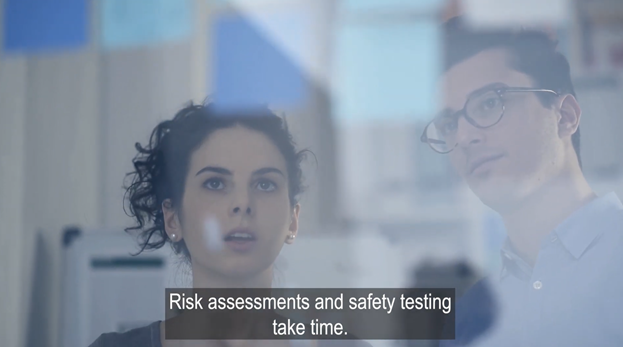
Reducing the climactic and environmental burden of emissions is a necessary element of the green transition
The ambition of this programme is to ensure that reducing climactic and environmental impacts becomes an integral part of the green transition of industry and society. We will support solutions and technologies that enable new or derived environmentally harmful emissions from new fuels and carbon capture technologies to be incorporated into businesses' transitions.
The aim is to build skills and knowledge regarding unwanted emissions from fuels, including how to measure and reduce emissions. This will give the industry access to knowledge on the documentation of emissions from a broad range of the new fuels and technologies of the future, enabling it to comply with existing and future regulatory restrictions. In addition, the industry will have a better foundation on which to assess how to reduce emissions from new green technologies that are harmful to human health and the environment.
This will ultimately strengthen the competitiveness of Danish producers of energy, engines, and clean air technologies while increasing the potential for environmentally friendly CO2 reduction across industry and society.
Knowledge of green fuel emissions benefits the whole value chain
The programme's target group broadly covers the entire value chain in the clean air sector, from companies developing new fuel, production, purification, and storage technologies for CO2 reduction to users of the new fuels and technologies, including:
- The industry, with manufacturers of engines, purification technologies and solutions, as well as CO2 capture facilities (the so-called "CCS facilities")
- The transportation sector, including users of new fuels and technologies, particularly shipping companies and the aircraft industry, but also heavy lorries
- The energy sector, including waste incineration plants and combined heat and power plants.
Reducing the climactic and environmental burden of emissions is a necessary element of the green transition
The ambition of this programme is to ensure that reducing climactic and environmental impacts becomes an integral part of the green transition of industry and society. We will support solutions and technologies that enable new or derived environmentally harmful emissions from new fuels and carbon capture technologies to be incorporated into businesses' transitions.
The aim is to build skills and knowledge regarding unwanted emissions from fuels, including how to measure and reduce emissions. This will give the industry access to knowledge on the documentation of emissions from a broad range of the new fuels and technologies of the future, enabling it to comply with existing and future regulatory restrictions. In addition, the industry will have a better foundation on which to assess how to reduce emissions from new green technologies that are harmful to human health and the environment.
This will ultimately strengthen the competitiveness of Danish producers of energy, engines, and clean air technologies while increasing the potential for environmentally friendly CO2 reduction across industry and society.
Related content
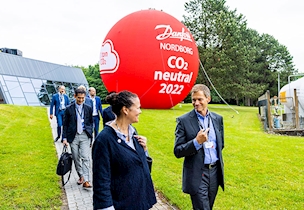
Danfoss advances sustainable product development
/Case
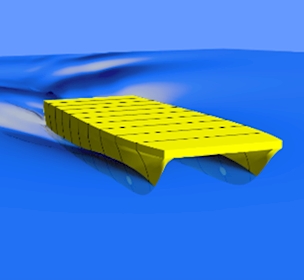
Maximise Offshore Vessel efficiency
/Page
Ensure fuel-efficient Offshore Wind Support Vessels through advanced testing and CFD.
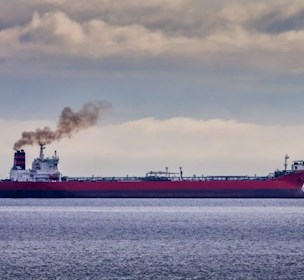
Methanol is a new green fuel for ship engines
/Article
The combustion of methanol in ship engines can mean significant reductions in CO2 emissions
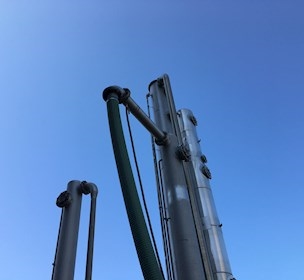
Documenting efficient carbon capture at Ammongas
/Case
Vital in fighting climate change, Ammongas proves the quality of their CO2 capture pilot plant.
Testing biofuel on the journey to lower emissions
/Case
Tanker shipping company aims to lower emissions, reduce climate impact, and document results.
Determination of proportion of biogenic CO2
/Service
Measure and document biogenic and fossil carbon proportion in flue and process gases.
Helping Alfa Laval develop ammonia as future green fuel
/Case
Ammonia combustion experiment brings Alfa Laval one step closer to green maritime fuel.
CCUS: Safety and profitability
/Industry
The technologies needed to capture and store CO2 already exist, but need further development.
Emissions and degradation - carbon capture at plants
/Article
Study: What emissions should be measured at future amine-based carbon capture facilities?
CFD is an alternative to expensive physical testing
/Article
Ammonia combustion simulations pave the way to new green fuels.
Clean air and reducing emissions
/Page
FORCE Technology supports industry, authorities and society in measuring and documenting emissions.
Future emissions from green fuels
/Article
But what exhaust gases can we expect from these new fuels? Can we eliminate these new emissions?
What is carbon capture, and how does it work?
/Article
CO2 can be collected from combustion processes or the atmosphere via many different technologies.


